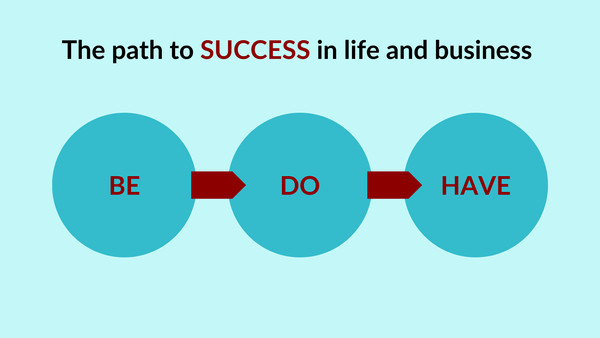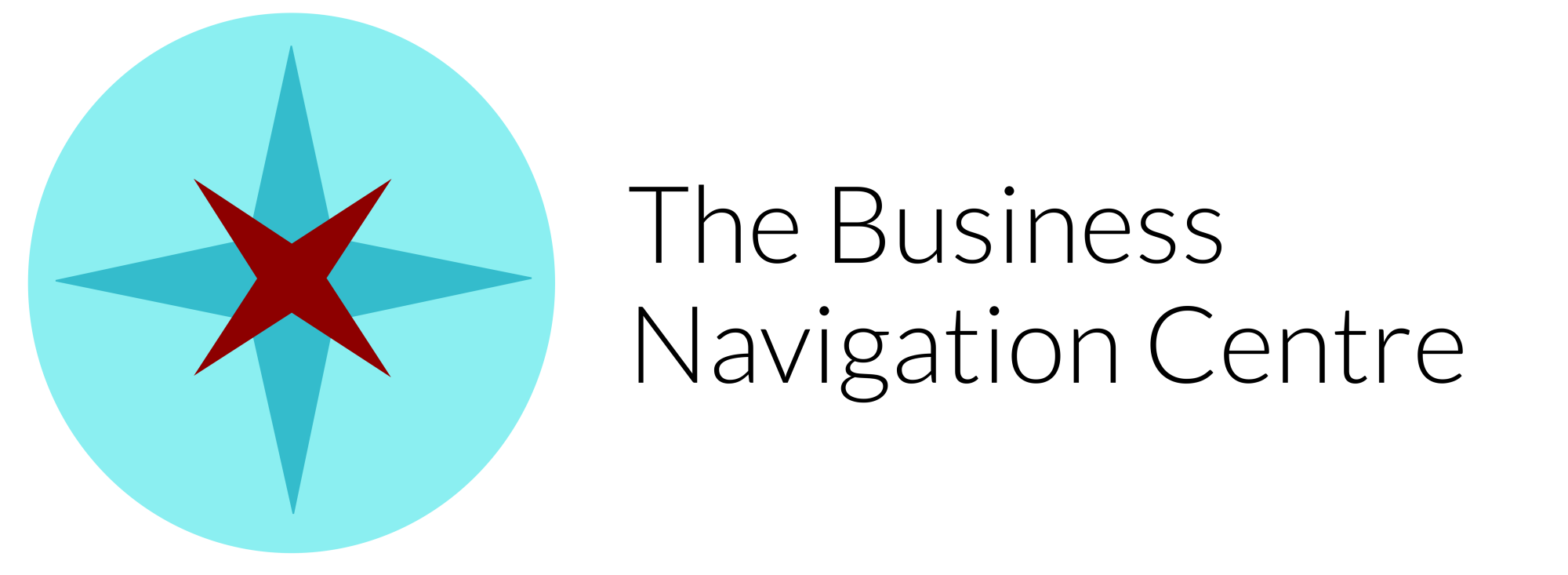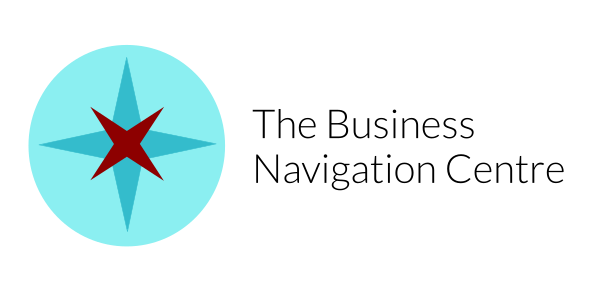
As any savvy business owner knows, managing your company's financial health is a bit like walking a tightrope. You need to carefully balance bringing in enough income to cover your costs and generate a profit, while also ensuring you don't overextend yourself too quickly. It's a delicate balancing act, but with some strategic planning, it can absolutely be done!
On one hand, you want your business to grow at a pace you can manage financially. Expanding too rapidly when cash flow is tight can spell disaster down the road. You want controlled, sustainable growth that keeps up with, but doesn't drastically outpace, your revenue. No one wants to soar high only to come crashing down!
On the other hand, you can't be so conservative with your spending that you stunt your growth potential. Making smart investments, whether it’s in equipment, technology, marketing, or talent, is often essential for moving your company forward. You have to spend money to make money, as the saying goes! The key is finding that sweet spot where you're minimizing unnecessary expenses but still investing adequately in growth.
Additionally, ensuring you have proper cash flow and a healthy profit margin is critical. You want to bring in enough monthly to not just cover fixed costs, but also have some left over to pad your bottom line. There will always be unexpected costs popping up, so having extra cushion is crucial. An unforeseen expense can’t sink your ship if you’ve got spare life rafts!
While you want your business to be financially sound month-to-month, it's also critical to think long term. Consider where you want your company to be in 5 years, 10 years or beyond. Set long-range goals for growth and profitability, and ensure your shorter term spending aligns with the big picture vision. This includes slowly building up emergency savings funds, retirement savings, and money reserved for future investments.
Finding the right balance may take some adjusting at first, but staying financially fit and nimble is well worth the effort. Just take it slowly, watch your budget diligently, and make careful, calculated moves towards growth. Before you know it, you’ll be balanced and ready to take your business to the next level!
For a free financial fitness review, send a request to book a call with Helene Sewell Business Navigator at helene@the-business-navigator.com
Did this blog help you? If it did, please share it with your business connections.
If you have any questions contact Helene HERE
Are you tired of putting off important tasks and feeling overwhelmed by procrastination?
You're not alone!
But fear not! We have the ultimate solution for you.
Introducing "3 Easy Steps to Banish Procrastination" - a downloadable guide that will transform your productivity and help you achieve your goals faster than ever before. Say goodbye to endless frustration and hello to a focused and motivated you. Don't wait any longer, click the link below to unlock the secrets to defeating procrastination once and for all!

Success. It's a seemingly simple word that carries a world of connotations, dreams, and—let’s admit it—incessant Google searches for the answer to life's most elusive questions: “How can I be successful?” The query has variously delivered everything from meditative enlightenment to the geeky delights of a new time-management app. But what if there’s more to success than just a list of morning affirmations or a tidy desk?
Let's embark on an odyssey through an unconventional dimension of success—one that involves three small words with the potential to re-engineer your life's course: Be Do Have. It’s not a trendy hashtag or a whimsical philosophy. It's a robust, tested methodology that can help you architect both personal triumphs and corporate victories.
The Beginnings of Be Do Have
The Be Do Have principle is not new. It's been whispered at leadership seminars, scribbled in self-help book margins, and emblazoned on motivational posters. But seldom has it been dissected and presented in a manner that makes it a practical, everyday mantra. At its core, Be Do Have is about a fundamental shift in mindset and action—one that doesn’t obsess over the possession of success but promises to build it from your core.
A Framework of Self-Realization
The concept is inherently simple: you must first become the type of person who is capable of achieving what you want (Be), then you must act in a way that’s consistent with the identity you seek (Do), and only thereafter can you expect to receive what such a successful being with successful habits would have (Have).
Embracing the Be Do Have Mindset in Business
Be Do Have isn't confined to personal milestones; it's a framework for professional development. It fosters a culture wherein employees are encouraged to embody desired traits and skills to achieve their professional aspirations and drive company success.
Cultivating Excellence in the Workplace
Businesses that implement Be Do Have principles reap the rewards of a more driven, proactive workforce. Employees who ‘are’ ambitious, innovative, and collaborative, and who ‘do’ work in sync with these attributes, lead to companies that ‘have’ increased profitability and a heightened competitive edge.
The Path to Innovation
Innovation, the lifeblood of many modern businesses, is deeply rooted in the Be Do Have cycle. By encouraging a culture of experimentation and continual learning, organisations help employees ‘be’ innovative thinkers. Channeling this mindset into new projects and strategies ensures that the company ‘does’ produce groundbreaking work, leading to the enviable position of ‘having’ a reputation for innovation.
Be Do Have: A Blueprint for Personal Leadership
Personal development strategies are often fleeting, like the winds of New Year's resolutions. But what if you could anchor yourself to a system that doesn't just guide change but ensures it resonates with your being?
Leading by Example
Self-imposed leadership is the most influential kind. By focusing on the qualities of a great leader, an individual ‘becomes’ a person others willingly follow. This self-actualised leader then ‘does’ what such a leader would, naturally guiding and inspiring others. The outcome is a community or team that ‘has’ the structures and support to excel.
Life as a Continuous Experiment
Living the Be Do Have way is embracing a life that’s not simply reactive, but actively shaped. It’s an ongoing series of experiments, where you embody new roles, take on different attitudes, and see what you can manifest.
Future-Proofing Through Personal Transformation
The world is in a state of perpetual transformation. Markets fluctuate, technologies evolve, and careers shift like the sands of time. In the face of such fluidity, the Be Do Have cycle offers an anchor to personal growth and resilience.
Professional Adaptability
Consider the professional skills you need to ‘be’ in 10 years. Start acquiring them now. Adapt your work habits and learning methods to what you ‘do’ when the skills are fully integrated. Finally, picture the professional ‘having’ that comes with mastering those future skills.
Navigating Life Transitions
As we navigate through life’s inevitable transitions, from career changes to personal milestones, the Be Do Have principle remains a compass. By aligning our actions with our evolving sense of self, we ensure that the fruits of success are harvested from within.
Conclusion: Your Be Do Have Journey
Success is not some remote, admirable figure to be beheld from afar. It’s not an exotic destination to be reached on a whim. It’s a state of being that blossoms from within, shaped by the daily toils and trials of ‘doing’ the necessary work.
Your journey with Be Do Have will likely have its share of questions, uncertainties, and even periods of doubt. But remember, the journey of a thousand miles begins with a single step, and with each step, you define the person you are, the actions you take, and the outcomes you deserve.
As you travel this path, reflect on the mantras of Be Do Have. Carry them with you through your entrepreneurial ventures, your career aspirations, and even your quiet moments of personal growth. Waves of success will come, certainly, but the lasting ripples of your being, doing, and having will navigate the shores of your success with an inimitable purpose.
Did this blog help you? If it did, please share it with your business connections.
If you have any questions contact Helene HERE
Are you tired of putting off important tasks and feeling overwhelmed by procrastination?
You're not alone!
But fear not! We have the ultimate solution for you.
Introducing "3 Easy Steps to Banish Procrastination" - a downloadable guide that will transform your productivity and help you achieve your goals faster than ever before. Say goodbye to endless frustration and hello to a focused and motivated you. Don't wait any longer, click the link below to unlock the secrets to defeating procrastination once and for all!

As a business owner, you likely keep a close eye on your cash balance and maybe less so on your profitability. Both metrics offer critical insights into the financial health and sustainability of your company. However, it's important to understand that cash in the bank and profit do not always go hand-in-hand.
Reasons You Can Be Profitable But Cash Poor
There are a few key reasons why a business may be making a profit without having the cash to show for it:
Clients paying later - If you offer credit terms to customers, you may have to wait 30, 60 or even 90 days to collect payments after making a sale. You made the sale but you won't have the cash in hand until later.
Inventory/Stocks or Supplier Bills - Selling products means you have money tied up in inventory. You may have to pay for this stock before you get the chance to sell it and collect the cash for it.
When providing services, you pay your staff at the end of the month they have worked, yet you may not charge the client until the following month and get the cash in another 30 days later.
Investing in Growth - When aggressively spending on new equipment, R&D, hiring, facilities and other investments for future expansion, short-term cash flow takes a hit even if profits rise over time.
The danger of this disconnect is that you may not have the working capital needed to keep funding operations, make payroll, and pay near-term obligations.
Reasons You Can Have Cash But Be Losing Money
On the other side, it's also possible for a company to have strong cash reserves or cash flow but still be losing money when profits are calculated:
You may how money to the tax man for VAT. This money is in your bank and strictly speaking is not yours and it is not profit you have made.
Customers may be paying you deposits for goods and services you have not delivered yet. This money has not been earned yet, and you may have to make some refunds.
In these cases, you could be tempted to spend money that is not yours and find yourself short when that debt is called in. Monitoring both metrics is vital.
The key in any business is finding the right balance between profitability and cash flow over both the short-term and long run. Understanding when and why these two critical measures may not fully align is the first step toward maintaining this balance and financial health.
If you have concerns over your profitability or cashflow and need clarity on your position and how to improve it, send me a DM and I will be happy to have a free insight call with you.
#businessaccounting #profileoptimization #profit #cashflowmanagement #fridayinspiration
Did this blog help you? If it did, please share it with your business connections.
If you have any questions contact Helene HERE
Are you tired of putting off important tasks and feeling overwhelmed by procrastination?
You're not alone!
But fear not! We have the ultimate solution for you.
Introducing "3 Easy Steps to Banish Procrastination" - a downloadable guide that will transform your productivity and help you achieve your goals faster than ever before. Say goodbye to endless frustration and hello to a focused and motivated you. Don't wait any longer, click the link below to unlock the secrets to defeating procrastination once and for all!

To do it myself or not to do it myself, that is the question… A simple guide to deciding when is best to delegate or outsource
If you are at that stage in your business where you want to grow further but your diary is packed, you will have been asking yourself the question but not taken the jump yet. So let me help you with this simple 4 step process before you get really stuck.
Step 1 Make a list of all the activities, tasks and duties you fill your diary with.
Step 2
Put a value of £10, £100, £1,000 or £10,000 against each line. It represents either what you expect the task would return for an hour’s work or what it would cost to delegate/outsource it. Let me give you some examples: Email triage £10
Booking meeting in your diary £10 Creating content for your social media £100
Answering customer queries £100 Creating a new marketing campaign £1,000
Setting up an automation to improve efficiencies £1,000 Developing a strategic plan for the next 5 years £10,000
Creating a new product £10,000
Step 3
Look at the list and work out how much of your time you spend per week on tasks that are below what you want to pay yourself. Be honest, there is no one else looking.
Step 4
Take the number from step 3 and multiply it by 9990. That’s what it is costing you for not spending time on your big ticket items.
Now you may argue that you could not spend all your time every week on £10,000/hour tasks and you would be right but you could spend a good portion on jobs that would make you £1000 per hour. So downgrade it and multiply by 990 instead. Still…
What difference would that amount of money make to your business and your life?
I hear you say: Yes but…
If you think that nobody can do it as good as you, someone can do it 80% as good and it is your job to find that person and help them get there. Your standards are holding you back.
If you think you can’t afford, it’s because your paying yourself before you invest in your business and your future. You are keeping yourself stuck.
If you haven’t got the time to train someone, it’s because you have left it too late to delegate, you can either stay stuck or bite the bullet and invest the time and see the benefits within weeks.
If you believe that a team is more trouble than it’s worth. Ask yourself the question: how do the bigger companies in your sector find the people to do the work? The problem is not in finding the right people, the problem is with your skills in recruiting and supporting your team. Learn to be a better leader and you will grow your business.
I even heard someone say to me: I did it and someone I recruited took away my customers. Whilst this is a possibility that they will try, how well they succeed is up to you. There are lots of measures you can put in place to mitigate that risk, both legally and strategically through your leadership style. That’s just an excuse you give yourself rather than take responsibility for your mistakes.
The only situation when you should do it yourself is when you are have more time than money. The answer is that simple. Don’t feel bad, lots of people are like you but you have a choice.
I hope this got you over the line. If you need help with implementing the decision you just made, get in touch and let’s have a free insight call and see if you could be a good fit. Book here.
Did this blog help you? If it did, please share it with your business connections.
If you have any questions contact Helene HERE
Are you tired of putting off important tasks and feeling overwhelmed by procrastination?
You're not alone!
But fear not! We have the ultimate solution for you.
Introducing "3 Easy Steps to Banish Procrastination" - a downloadable guide that will transform your productivity and help you achieve your goals faster than ever before. Say goodbye to endless frustration and hello to a focused and motivated you. Don't wait any longer, click the link below to unlock the secrets to defeating procrastination once and for all!

In the dynamic landscape of business, decisions are the rudders steering our entrepreneurial ships. What if I told you that the questions you ask yourself play the role of navigator, determining whether you navigate tactical waters or set sail into the strategic horizon? Join me as we delve into the profound impact of the questions we pose and explore the strategic depth they can bring to your business decisions.
- The Questioning Mindset: Setting the CourseAs entrepreneurs, our minds are constantly abuzz with inquiries. Are these questions merely fleeting thoughts, or can they be the compass guiding us toward success? Consider this: tactical questions breed tactical decisions, and strategic questions pave the way for strategic choices. It's not just about asking questions but asking the right questions that align with your business goals.
- Essential Questions Every Entrepreneur Should Ask: A Blueprint for Successa. What is the vision of my business?Your business's vision is the North Star, providing direction and purpose. Crafting a clear and compelling vision statement propels you forward, ensuring that every decision aligns with the ultimate destination.b. What is the mission of my business?A well-defined mission statement acts as the engine driving your business. It encapsulates your purpose and serves as a constant reminder of the impact you strive to make in the world.c. What are the values of my business?Values are the guiding principles that shape your company culture and decision-making. They are the bedrock upon which a resilient and ethical business stands.d. What is my value proposition?Your value proposition is the unique offering that sets you apart from the competition. Articulating this clearly ensures that every product or service aligns with what your customers truly need.e. Who are my ideal clients?Knowing your ideal clients inside out enables targeted marketing and tailored solutions. It's not just about reaching customers; it's about connecting with those who resonate with your values and offerings.f. How can we give our clients the best customer journey?The customer journey is a strategic map, and each touchpoint is a milestone. Ensuring an exceptional customer experience requires constant refinement and adaptation.g. How could this go wrong?Anticipating potential pitfalls is a strategic exercise that prepares you for challenges. By addressing weaknesses and vulnerabilities, you fortify your business against unforeseen obstacles.
- Strategic Depth: The Currency of High-Stakes QuestionsPicture your business decisions as a poker game. The higher the stakes, the more critical the questions become. When significant financial interests are in play, asking strategic questions becomes paramount. These questions delve into the heart of risk assessment, long-term viability, and the alignment of every move with your overarching business strategy.
In the ever-evolving world of business, the questions we ask ourselves are not mere musings; they are the architects of our success. By adopting a strategic questioning mindset and consistently revisiting fundamental queries, you fortify the foundation upon which your business stands. Remember, the journey to success begins with the questions you pose, so ask wisely, answer thoroughly, and watch your business set sail toward new horizons.
If you need help to raise the quality of your questions, a mentor is the perfect partner to ask those questions and teach you how to ask them yourself. For support send QUESTIONS in a direct message.
Did this blog help you? If it did, please share it with your business connections.
If you have any questions contact Helene HERE
Are you tired of putting off important tasks and feeling overwhelmed by procrastination?
You're not alone!
But fear not! We have the ultimate solution for you.
Introducing "3 Easy Steps to Banish Procrastination" - a downloadable guide that will transform your productivity and help you achieve your goals faster than ever before. Say goodbye to endless frustration and hello to a focused and motivated you. Don't wait any longer, click the link below to unlock the secrets to defeating procrastination once and for all!










